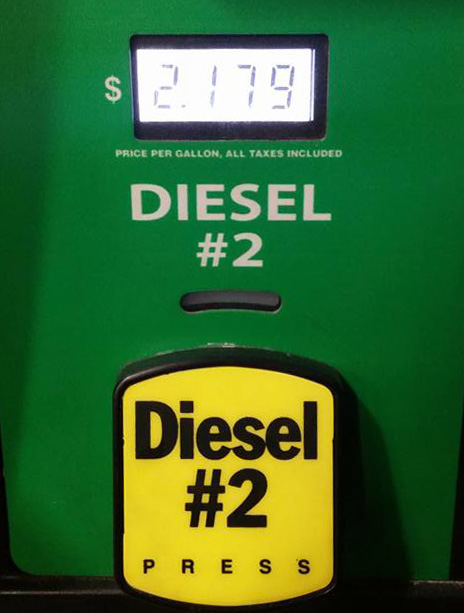

It seems like I’m spending more and more time in the truck these days, and on long road trips I always wince when the fuel light comes on more than 20 miles from the next fueling station.
As we get more comfortable with our trucks, and just how far they can run on fumes, we tend to test their fuel range more and more until we find a cheaper or more convenient station.
But a new report by Motoring.co.uk confirms what we’ve long suspected: “Running out of fuel could significantly damage a vehicle particularly if it has a diesel engine.”
Yet more and more drivers are pushing their luck when the fuel light comes on, the report notes, at least in the UK.
Now we could really care less about the number of folks in the UK with their fuel lights on, but we always take notice when reports shine a light on diesel injector damage. And this report shouldn’t come as much of a surprise, if you think about what happens when you run low or completely out of diesel.
When you’re running on fumes, you’re burning poor quality diesel from the bottom of the tank. As we’ve written previously, “contaminated diesel fuel can put your engine at risk, destroying hundreds of thousands of engines and costing truck drivers millions in recent years.”
Poor fuel quality is a major reason why fuel injectors go bad. According to our experts, “fuel injectors will fail when debris (water, dirt particles, etc.) or rust find their way into the system and, after time, scour valve sets, clog nozzles, or even cause the nozzle needle to stick.”
If the worst-case scenario happens, and you run completely out of diesel, the damage could be much worse.
When you run out of diesel, the pump begins to pull in air, which can completely destroy it along with the injectors. When your truck gets air bound, the entire fuel system can fill with air and firing your engine back up becomes a much more difficult process.
We see it all the time at repair shops, having to bleed the system – removing filters, pressure blowing the fuel lines and repriming the engine with fresh diesel.
“The solution is to bleed the system which enables any excess air to escape,” Motoring.co.uk notes. “Furthermore – whether the car is a petrol or diesel – the final remnants of fuel might contain sediment that blocks its filters.”
So long story short, find a fueling station when the light comes on, even if it costs a little bit more than the next station 15 miles down the road.






